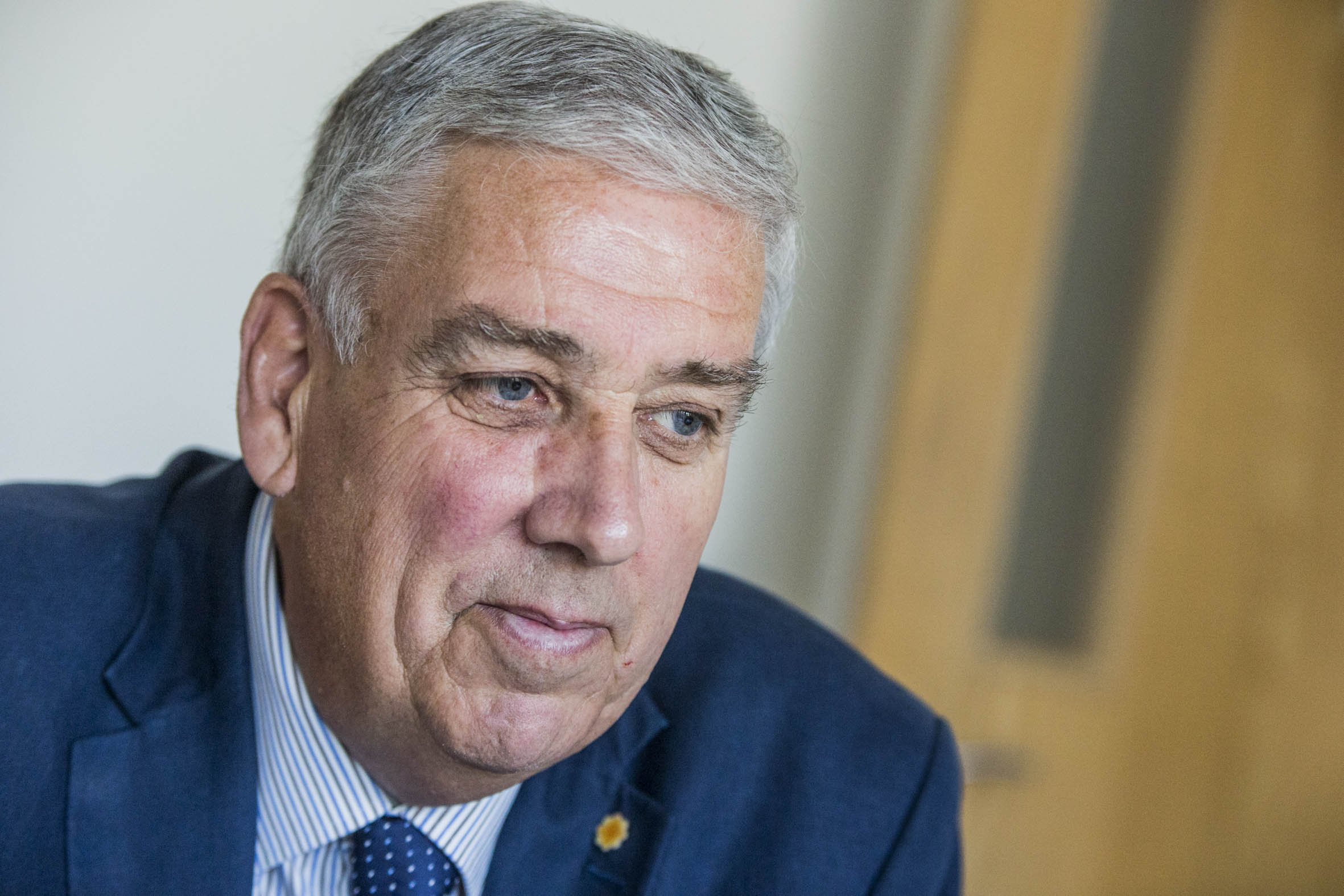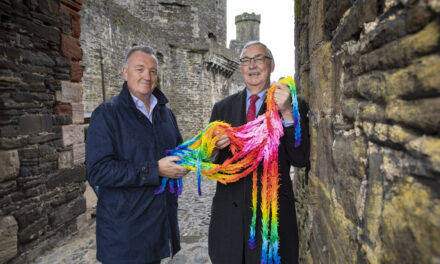A police boss is calling for assurances from the UK Government over security measures at the port of Holyhead.
North Wales Police and Crime Commissioner Arfon Jones is concerned a new “flexible” approach to counter terrorism could see resources concentrated in ports in the south of England
He fears that could leave Holyhead and other Welsh ports under-resourced and under-staffed.
Mr Jones is also worried that the Brexit vote to quit the European Union will make a “dog’s dinner” of the so-called Common Travel Area which means that currently people can travel freely between the UK and the Republic of Ireland.
He pointed to the fact that Holyhead is the second busiest ferry port in the UK and handles two million passengers a year.
The police commissioner raised the issue after an independent expert voiced concern that a shake-up of counter-terrorism policing, concentrating activities in larger ports, risked reducing checks on those arriving in the UK in private planes and ships at small airfields, harbours or landing places.
Mr David Anderson QC, the outgoing Independent Reviewer of Terrorism Legislation, said: ‘My successor may at some stage choose to look at coverage of smaller south and east coast ports, marinas and landing places.
‘It is conceivable that they might be an option for returning foreign fighters or other terrorists, as they appear to be for the migrants who are sometimes reported to be using them, or seeking to use them, in order to get into the country.”
According to the commissioner, Mr Anderson’s points were “well made” but he felt the potential problems applied equally to Holyhead.
Mr Jones said: “A previous independent reviewer, Lord Carlisle QC, warned back in 2002 that the under-policed ports were the ‘soft underbelly’ in the war on terror.
“I have had concerns since before the referendum of not only the impact on crime, security and safety but also how the Common Travel Area will work once we leave the EU.
“I had the opportunity to question the Minister for Security, Ben Wallace MP at a meeting of Police and Crime Commissioners about concerns around police resources at the ports and I was told that the Government were aware of vulnerabilities at the ports.
“I think we all know that criminals and terrorists are going to find the easiest way to get into the country, and they won’t worry much if it’s from Dublin or Heathrow.
“If we cut down on the numbers of police officers in Holyhead, in Pembrokeshire, Lancashire and Scotland, it’s going to make it easier for criminals and terrorists to come in.
“Terrorists and criminals in general will abuse the Common Travel Area, they will find the soft spots to come into the country and we must be ready to address that issue.
“What we need is some clear guidance from the Westminster Government because there are far too many unanswered questions at the moment and when we’re talking about security and crime we really need to have some answers.
“It’s always been made out that this is not a money saving exercise but I think it probably is.
“The freedom for people to move around the Common Travel Area with minimal identity documents has existed ever since the Irish Free State was founded in 1922. In order for officers to be intelligence led we need better manifests from the ferry companies, similar to what we receive from the airlines.
“As well as having better manifests from ferry companies, we need decisions from central government as to how the Common Travel Area and security in general actually operates post-Brexit.
“My view is that we’ll need a lot more resources in places like Holyhead than we have at the moment.
“There is nothing more important to me than keeping people safe.”










